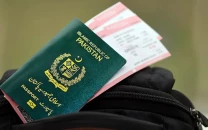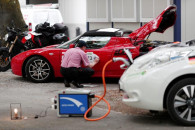Bridging the gulf of distrust
Don't start trusting educational institutions today, but start building & strengthening those we can trust tomorrow

The loss of trust has now gone from individuals to institutions. We are suspicious of the military and we are unhappy with the civilian administration. We do not think much of the judiciary, the police is corrupt we say, the media has sold its soul to the enemy, the parliament to us is full of incompetent characters. The most alarming part of this trend is that this growing distrust now extends to the most fundamental pillars of society — the educational institutions.
There is little support for higher education, among the public or in the government. No one believes in research anymore, not even those who are paid to promote it. It is hard to use ‘HEC’ and ‘relevant’ in the same sentence. Nearly all of my academic colleagues, in the public and private universities, who I met in the last week or two, have pretty much given up on the HEC. Many have given up on innovation and research altogether. The general public, while demanding higher education, has also given up on universities as the place of inquiry and creativity. University education is now a platform to get a job, not a place to think or unlock grand mysteries. The same goes for lower levels of education. You send your child to public schools only if you absolutely cannot afford the private ones. Even successful alums of the public schools, will not even consider for a second, sending their child to the public school they attended.
The increasing level of distrust in educational institutions has, on one hand, given rise to the booming business of private schools, that are more interested in franchising than educating. On the other hand, this not only puts a tremendous financial burden on parents, it also strengthens the separation of socioeconomic classes and takes us farther from social integration.
There can be many arguments in support of our current distrust of educational institutions. I am sure many have merit and real data to support. But there is no argument in maintaining the corrosive status quo. My point is not to start trusting our educational institutions today, but to start building and strengthening institutions that we can trust tomorrow. The task is too great to be left to individuals we do not trust. The reduction in our trust deficit will require efforts at every possible level. It will require an increase in our financial support for public sector education, it will mean stronger parent-teacher associations (which in most schools simply do not exist), it will require a curriculum reform for a more tolerant society and a curriculum reform that focuses on creativity. If a mobilised civil society can rein in instigators of instability in the heart of the capital, why can’t we generate enough pressure for reforming the curriculum that creates such instigators? It will require an effort larger than we have seen, but the cost of inaction is simply unacceptable.
If we want to believe in our future, a future that is better than 2014, we need to build trust in the institution that enables the future. The belief that education can usher in a better tomorrow is the first step.
The conversation in 2015 needs to turn from what is, to what if?
Published in The Express Tribune, December 30th, 2014.
Like Opinion & Editorial on Facebook, follow @ETOpEd on Twitter to receive all updates on all our daily pieces.



1729685382-0/Untitled-design-(57)1729685382-0-208x130.webp)










COMMENTS
Comments are moderated and generally will be posted if they are on-topic and not abusive.
For more information, please see our Comments FAQ